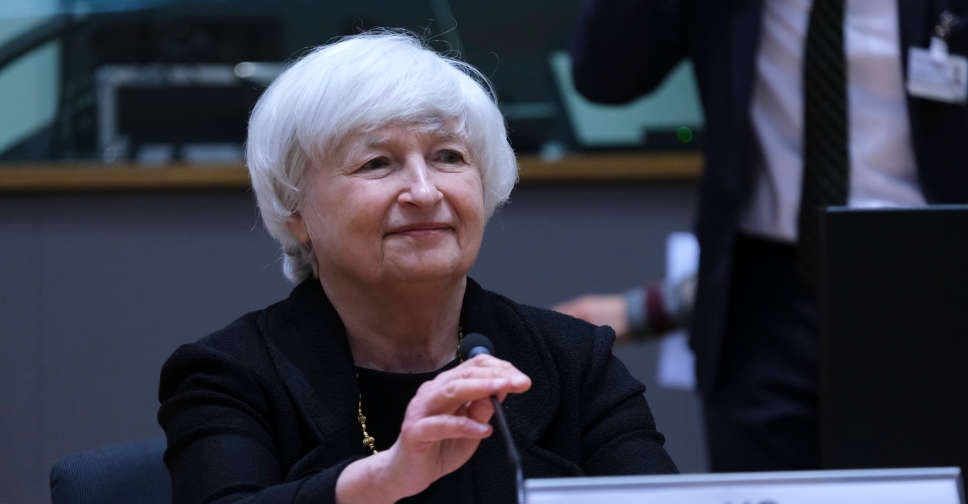
US Treasury Secretary Janet Yellen warned that failure by Congress to raise the government's debt ceiling - and the resulting default - would trigger an "economic catastrophe" that would send interest rates higher for years to come.
Yellen, in remarks prepared for a Washington event with business executives from California, said a default on US debt would result in job losses, while driving household payments on mortgages, auto loans and credit cards higher.
She said it was a "basic responsibility" of Congress to increase or suspend the $31.4 trillion borrowing cap, warning that a default would threaten the economic progress that the United States has made since the COVID-19 pandemic.
"A default on our debt would produce an economic and financial catastrophe," Yellen told Sacramento Metropolitan Chamber of Commerce members. "A default would raise the cost of borrowing into perpetuity. Future investments would become substantially more costly."
If the debt ceiling is not raised, US businesses will face deteriorating credit markets, and the government will likely be unable to issue payments to military families and seniors who rely on Social Security, she said.
"Congress must vote to raise or suspend the debt limit. It should do so without conditions. And it should not wait until the last minute."
Yellen told lawmakers in January the government could pay its bills only through early June without increasing the limit, which the government hit in January.
Unlike most other developed countries, the US puts a hard limit on how much it can borrow. Because the government spends more than it takes in, lawmakers must periodically raise the debt ceiling.
Kevin McCarthy, leader of the Republican-controlled House of Representatives, last week floated a plan that would twin $4.5 trillion in spending cuts with a $1.5 trillion increase in the debt cap, calling it the basis for negotations in coming weeks.
The White House insists the two issues should not be linked, and the Democratic-controlled Senate is likely to reject the proposal.
Financial markets are growing increasingly concerned about the standoff, sending the cost of insuring exposure to US debt to its highest level in a decade, with financial analysts warning about the increasing risk of default.




 Nasdaq set to confirm bear market as Trump tariffs trigger recession fears
Nasdaq set to confirm bear market as Trump tariffs trigger recession fears
 Dana Gas and Crescent Petroleum exceed 500M boe in Khor Mor field
Dana Gas and Crescent Petroleum exceed 500M boe in Khor Mor field
 China to impose tariffs of 34% on all US goods
China to impose tariffs of 34% on all US goods
 Shares bruised, dollar crumbles as Trump tariffs stir recession fears
Shares bruised, dollar crumbles as Trump tariffs stir recession fears
 Wall Street futures sink as tariffs fuel recession fears
Wall Street futures sink as tariffs fuel recession fears



